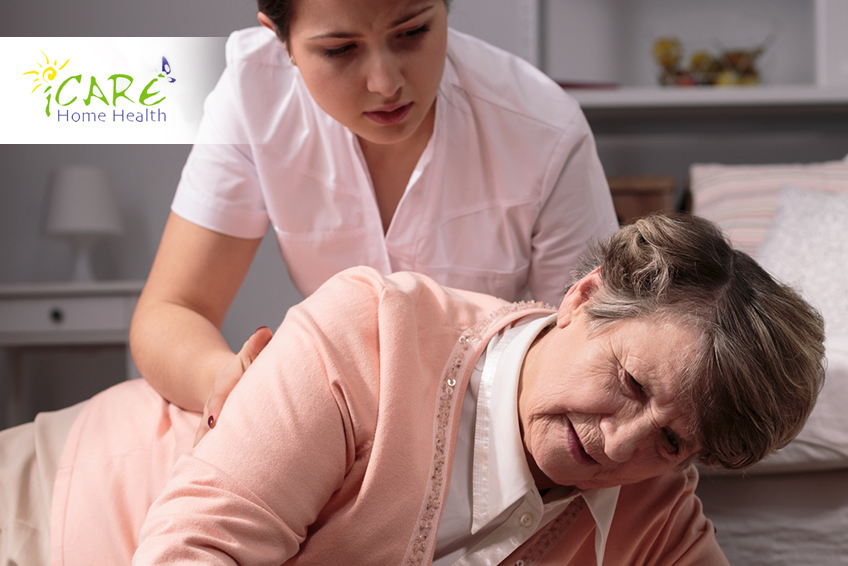Commonly Overlooked Risk Factors of Slip and Falls

Slips and fall accidents are one of the most common reasons seniors visit the emergency room. And as we age, the physical risks associated with falling increases due to decreased muscle mass, weight loss, and brittle bones. This can result in slip and fall accidents causing extended hospital stays, physical damaged, and emotional suffering. To prevent lasting damage, it’s important to respond to falls quickly and ensure that medical attention is swiftly received.
While no one is exempt from falling, there are several risk factors associated with an increased risk of slip and fall accidents.
Multiple Medications: It’s not uncommon for seniors to take multiple medications to treat physical and cognitive health issues. While these medications can help greatly with their symptoms, there can be side effects, such as drowsiness, loss of balance, and dizziness. These side effects can greatly increase the risk of falls. If your loved one experiences these potentially dangerous side effects, talk to their doctor. There may be something they can do to counteract these effects or a different medication they can take.
Poor Footwear: While many seniors favour their old, worn-in slippers, they might not be the safest footwear choice. Slippers tend to have a larger fit, which means they can slip off feet easily. They also aren’t created with a good traction on the soles to prevent slips. Slippers are also not specially designed to move with the foot, which increases the risk of slipping. Making sure that your loved one wears a good pair of shoes every day will help to decrease the chance of slipping as they walk around their home.
Infrequent Eye Exams: Seniors need to see their optometrists regularly for checkups, as their vision tends to change quickly. Infrequent eye exams mean they’re not getting the most up-to-date lenses they need to see clearly. The resulting blurred vision could result in not seeing obstacles in their path or sudden elevations, resulting in trips and falls.
Hearing Loss: While mild hearing loss is common for seniors, more severe hearing loss can increase the risk of falls. Hearing loss can decrease your loved one’s awareness of what’s going on around them, which could cause them to slip or fall. Hearing loss can also be a sign of ear problems that directly impact balance.
Decreased Personal Care: Forgetting to bathe or a lack of interest in personal care can indicate cognitive issues or decreased mobility. Both of these problems can result in more difficulty walking or maneuvering around the home, which increases the risk of slips and falls. If you notice your loved one isn’t taking care of themselves as well as they used to, express your concern to their doctor or care provider. A home caregiver in Mississauga, Burlington, or Oakville can also help your loved one maintain their personal care if there are cognitive or mobility issues.
iCare Home Health’s Qualified Home Caregivers in Mississauga, Burlington, and Oakville
Partnering with a home caregiver can help make caring for seniors easier by providing care at home. Senior home care in Burlington, Mississauga, and Oakville can provide convenient, at-home care to ensure that your loved ones are safe and their needs are being met. iCare Home Health offers senior home care in Burlington, Mississauga, and Oakville through scheduled visits and live-in care services. We understand that your loved one wants to maintain their independence for as long as possible while avoiding extended hospital stays. That’s why home caregivers are committed to treating seniors with care, respect, and dignity. Contact us to find out how iCare Home Health’s home health care services can help your loved one.

